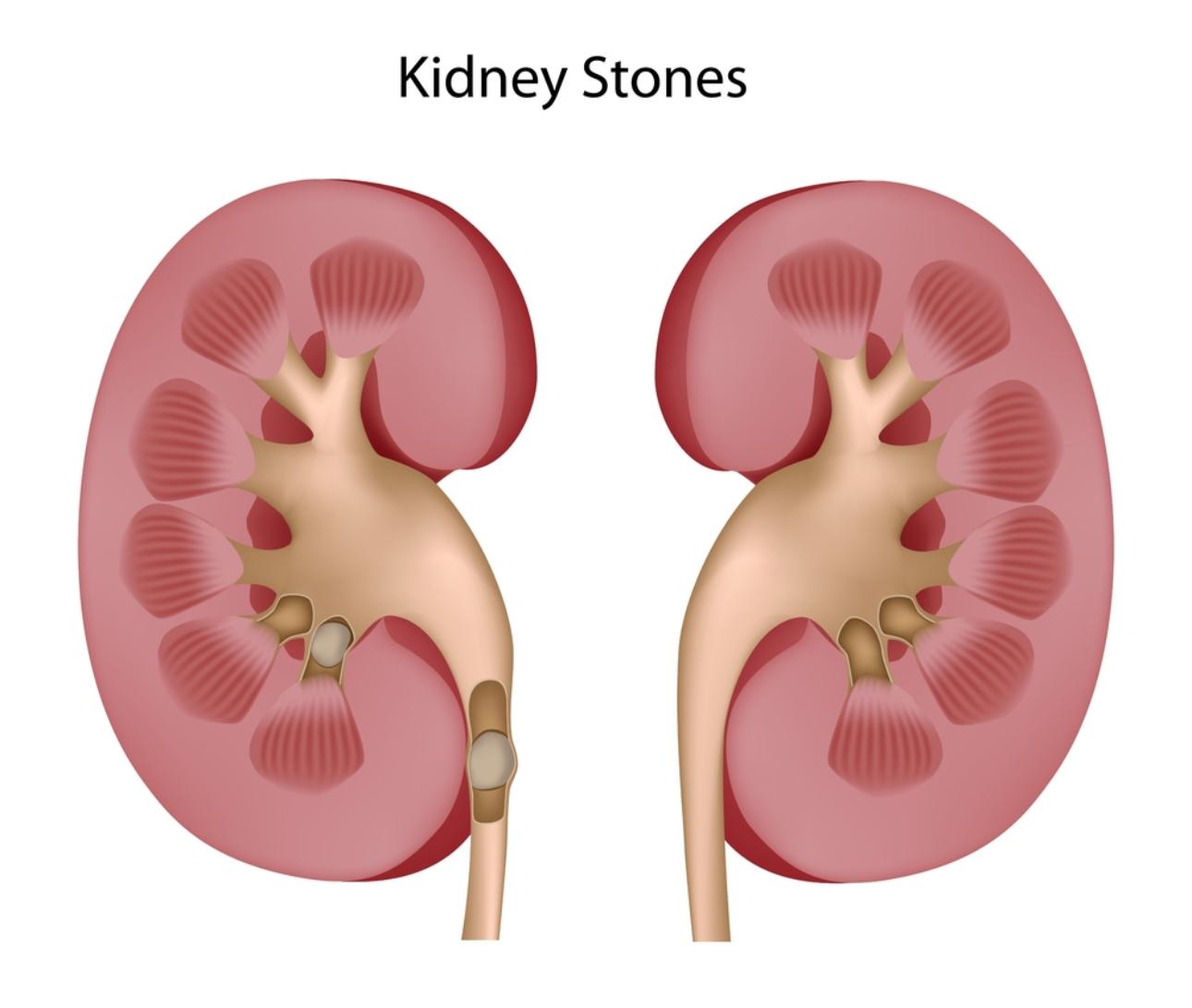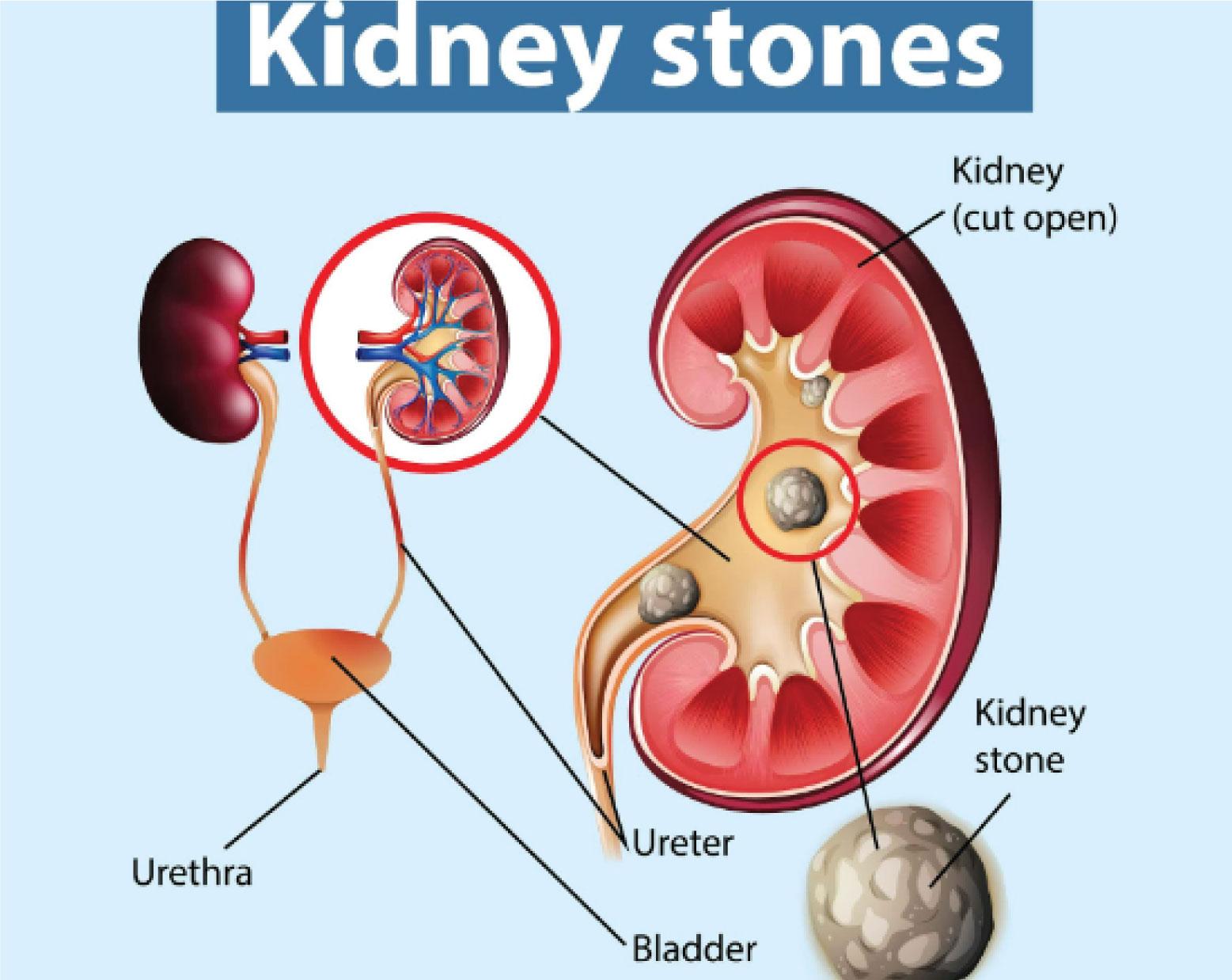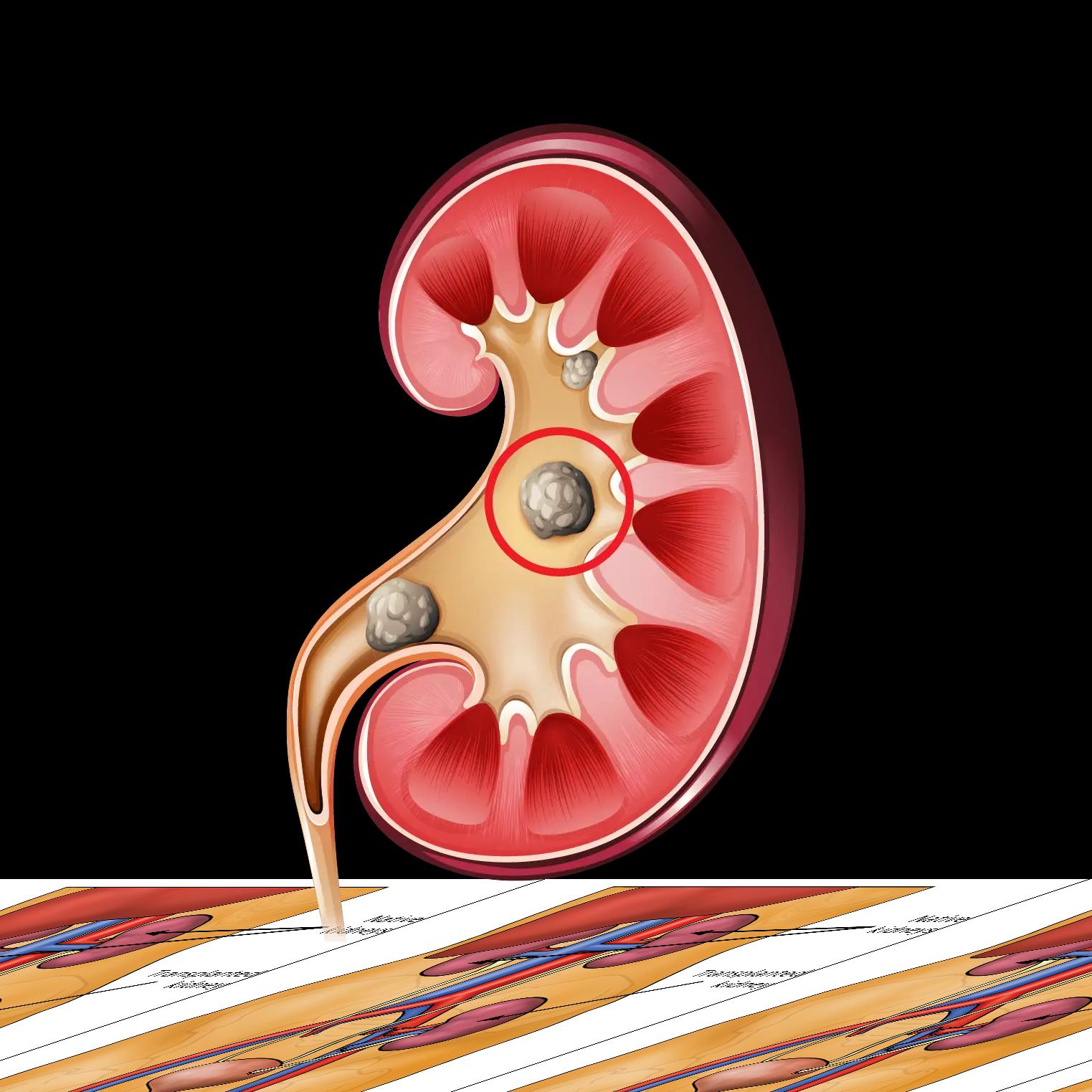Kidney Stone
Kidney stones can form in the kidneys (renal calculi), ureters (ureteric stones), or bladder (bladder stones). If a stone gets stuck in the ureter, it can obstruct urine flow, causing severe pain and infection.
Causes:
- High calcium, oxalate, and uric acid levels – These substances promote stone formation.
- Kidney infections or genetic factors – Some individuals have a higher tendency to develop stones.
- Urinary obstruction – Caused by an enlarged prostate or blockage in the ureter.
- Chronic Kidney Disease (CKD) or Hyperparathyroidism – Mineral imbalances in the body can lead to stone formation.


Symptoms:
- Severe pain in the back, lower abdomen, or sides (Renal Colic).
- Burning sensation while urinating, blood in urine, frequent urination, and reduced urine output.
- Severe symptoms such as pain, nausea, vomiting, fever, and decreased urine output require immediate consultation with a nephrologist.
Important Considerations:
- Kidney stones tend to recur; a single surgery does not guarantee permanent relief.
- A nephrologist should determine the underlying cause of stone formation.
- Proper diagnosis and treatment can help manage the condition.

If kidney stones are not treated in time, they can lead to kidney damage, infections (UTI/Sepsis), or even kidney failure. Consulting a nephrologist is essential for timely treatment.
Kidney stones can form in the kidneys (renal calculi), ureters (ureteric stones), or bladder (bladder stones). If a stone gets stuck in the ureter, it can obstruct urine flow, causing severe pain and infection.

Causes:
- High calcium, oxalate, and uric acid levels – These substances promote stone formation.
- Kidney infections or genetic factors – Some individuals have a higher tendency to develop stones.
- Urinary obstruction – Caused by an enlarged prostate or blockage in the ureter.
- Chronic Kidney Disease (CKD) or Hyperparathyroidism – Mineral imbalances in the body can lead to stone formation.

Symptoms:
- Severe pain in the back, lower abdomen, or sides (Renal Colic).
- Burning sensation while urinating, blood in urine, frequent urination, and reduced urine output.
- Severe symptoms such as pain, nausea, vomiting, fever, and decreased urine output require immediate consultation with a nephrologist.

Important Considerations:
- Kidney stones tend to recur; a single surgery does not guarantee permanent relief.
- A nephrologist should determine the underlying cause of stone formation.
- Proper diagnosis and treatment can help manage the condition.
If kidney stones are not treated in time, they can lead to kidney damage, infections (UTI/Sepsis), or even kidney failure. Consulting a nephrologist is essential for timely treatment.
Get One Step Ahead Of Disease
Early detection and timely treatment can make all the difference. Take charge of your health today—schedule a consultation with our experts!
